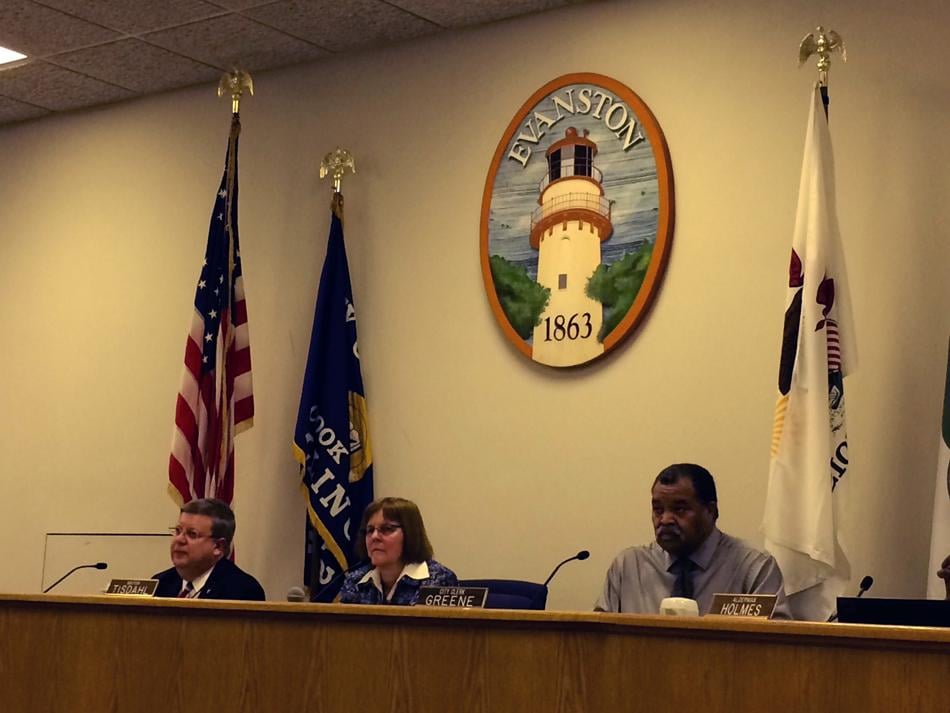Evanston Public Works reports snowiest winter on record
Paige Leskin/The Daily Northwestern
Evanston city manager Wally Bobkiewicz, Mayor Elizabeth Tisdahl and city clerk Rodney Greene listen to an update on the city’s snow removal efforts. The Public Works Department reported that this year’s winter was the snowiest on record.
March 31, 2014
In a presentation to City Council on Monday, the Public Works Department announced that snowfall from this winter was measured at 90.9 inches, a city record.
Public works director Suzette Robinson said four separate snowstorms that each brought in more than 10 inches of snow contributed to the total. The city originally budgeted $685,000 for snow removal, but the actual amount spent came to just under $1.3 million, she said.
However, Robinson said Evanston was able to save money throughout the winter by using updated technology to melt the snow.
“We produce our own salt brine that’s more effective,” she said. “With the two brine trucks we have, there was less salt used and less overtime for the trucks.”
Robinson also introduced a survey available to Evanston residents in order to gather community input about the city’s snow removal efforts. The poll includes questions about the responsibility of snow trucks to plow alleys and sidewalks and whether the public would be willing to pay an increased property tax to allow for it.
Ald. Delores Holmes (5th) said removing snow from alleys is important because recycling and garbage trucks need access to them. Other aldermen said a universal tax would be unfair, as not every resident has a sidewalk or alley by their residence.
Robinson also presented a plan for major public works improvements through 2017. She highlighted a $52,000 improvement to Davis Street to be installed in July 2014. Robinson also proposed roadway and bike lane improvements to Sheridan Road and Chicago Avenue, which city manager Wally Bobkiewicz said the council would discuss further in May.
City Council also heard an update from utility director Dave Stoneback on the future of Evanston’s wholesale water sales. The sale of water to outside communities can bring millions of dollars of revenue to Evanston, Stoneback said.
The city currently provides water to four towns west of Evanston, including Skokie, and is looking to expand to other nearby communities. Among the communities being considered, Niles, Morton Grove and Park Ridge are the most viable potential customers, Stoneback said. Bobkiewicz said those towns are still exploring their options, however.
“It’s a very large undertaking,” Bobkiewicz said. “It’s a lot of money, so a lot of questions are raised.”
In the most recent study done on the transmission pipes used to transport water, the city projected that towns could save upwards of $100 million in 30 years by getting its water from Evanston as opposed to Chicago. Evanston houses the second largest water treatment facility in Illinois.
Some towns are hesitant to buy water from Evanston because of the large profits the city stands to make, Bobkiewicz said. However, Bobkiewicz said he doesn’t plan on lowering the rate.
“We have to make sure Evanston’s investment is protected,” he said. “We’re continuing to work with (the other communities) and build trust with them.”
Email: [email protected]
Twitter: @paigeleskin


